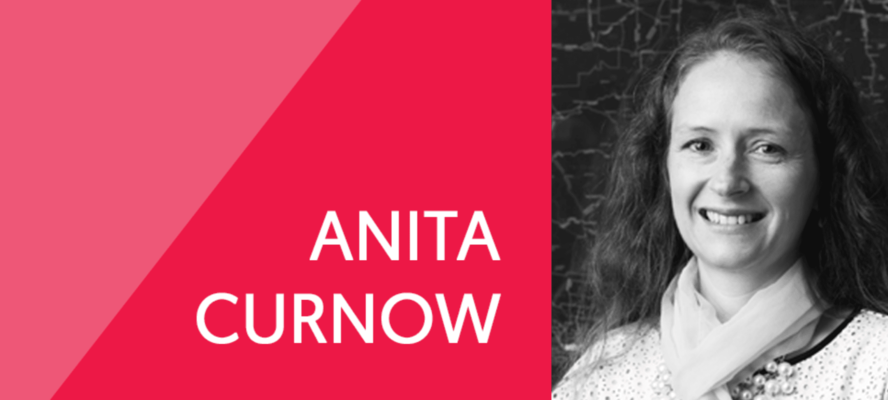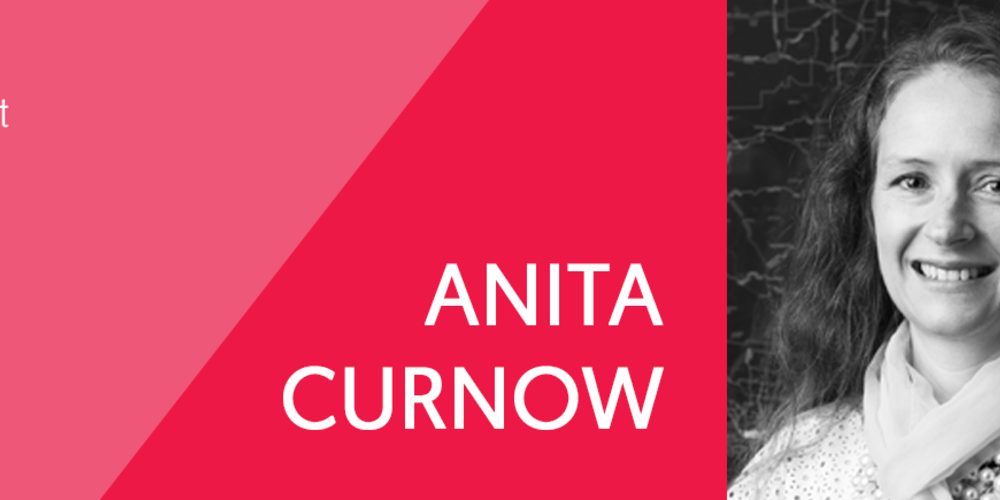My introduction with Anita Curnow was far from traditional. Anita, the Executive Director Access and Operations at VicRoads, had seen a role my firm was advertising on behalf of our clients that included the term “go-to guy.” Anita questioned whether that type of language would deter a woman from applying for the position and, after a moment’s consideration, I agreed.
While an unintentional oversight (not an excuse) on my firm’s behalf, having this pointed out perfectly exemplified unconscious bias. It’s a notion I have become more and more interested in, particularly as the Managing Director of a recruitment consultancy specialising in the built and natural environment, an industry traditionally dominated by men.
I thought that a conversation with Anita, an extremely successful and well-regarded Transport Engineer could enlighten me, and the wider Aspect community, a bit more about the topic as it relates to our industry. She graciously agreed to an interview to discuss how she got into engineering, when she realised the industry might have a diversity problem, and how VicRoads, where’s she been for 14 years, is addressing the challenge head on.
Choosing engineering
Anita’s interest in studying Engineering originally stemmed from an interest in maths. Because pure science wasn’t an option Anita was particularly interested in — “I felt it was a bit disconnected from solving problems” — her maths teacher suggested she consider engineering as a career.
Anita flourished at Monash University’s engineering department. And while she was always encouraged in her studies, it was apparent, particularly coming from an all-girls school, that this was a male-dominated field.
Still, as a talented student and employee, Anita never noticed how work opportunities might be different for women. It wasn’t until she had children, that she realised how things might be different for women.
“After I had my first child and began working part-time, I found myself in this pattern of thought that said, ‘They’ve been good enough to give me part-time work, I can’t ask for a promotion.’”
Anita knew she could do more and be in more senior roles, but she wasn’t sure how to apply for them; the job adverts never mentioned part-time or flexible work. It wasn’t until her husband could scale back to part-time hours that Anita felt they’d have the right balance within their family.
Changing the culture
That’s just one of the reasons Anita is so committed to changing the workplace culture at VicRoads. In 2014, the organisation sent out the Victorian Public Sector Commission’s culture survey– the “People Matter” survey, gauging things like job satisfaction and engagement. VicRoads was able to gather valuable information about the engagement and productivity of its diverse workforce which identified the untapped female talent within VicRoads.
VicRoads leaders started talking to staff about what type of culture they wanted throughout their 40+ offices, and this resulted in a catch-cry of “Care, Share, Dare.” Including “Dare” empowers employees to make decisions from the bottom up.A “Care, Share, Dare” culture is a key building block to encourage and facilitate diversity throughout the business.
VicRoads realised that a culture of flexibility in the workplace — flexible start and finish times, part-time roles, job sharing and greater engagement with women in particular was necessary to further improve employee engagement amongst all staff and help them grow within the organisation.
Anita sees this “flexibility without stigma” as a way of attracting and retaining different types of people, no matter what their gender, sexual preference or life stage.
“It’s accessible to everyone, and becomes expected, rather than being seen as ‘this person got special treatment because they’re a woman or have small children,’” said Anita.
Leaders are also encouraged to put women in acting roles for up to 6 months, giving women the opportunity to prove to others and, most importantly, themselves, that they have the talent to take on more responsibility and grow with the organisation.
“We found that women were not putting themselves forward because they didn’t believe they have what it takes to do a certain role,” Anita said.
A lot of this is a result of the “mini-me” syndrome, or another form of unconscious bias, where leaders select those like them to mentor, champion, and follow in their footsteps. Unfortunately, when most of those leaders are men, they tend to choose other men, leaving little room for women to move up the ladder, or with no examples of females in executive positions to “look up to”.
By giving women the opportunity to prove themselves in acting roles, they’re instilled with the confidence to keep pursuing the next step in their careers and encouraging them to consider leadership positions.
Today, VicRoads’ goal is to have the same gender representation at leadership levels as it does in the wider business. Women make up about 37 percent of the business. Two years ago, the executive team was about 14 percent female; today, women comprise 30 percent of the executive roles. Additionally, the recent intake of 2016 graduates across all disciplines at VicRoads compromised 64 percent women.
When the People Matter survey was conducted in 2016, VicRoads saw a 70 percent response rate, up from 47 percent in 2014. More than 650 comments were received, half of which related to culture, something that hadn’t come up just two years earlier. Half of these comments were positively-geared, (this was not expected as typically a “free comments” section receives more critique than praise).
Though the organisation is clearly making progress, they’re not nearly finished. “It’s a dangerous thing to ever think we are done,” said Anita. Since gender diversity improvement is going so well, VicRoads is looking at how it can better champion cultural diversity going forward.
Diversity makes business sense
What VicRoads has noticed is that greater diversity doesn’t just mean they’re doing the right thing — it makes business sense, too.
They have found that the more diversity and inclusion efforts the business makes, the higher the retention and engagement rates amongst their staff. In fact, in VicRoads 2016 People Matter survey, job satisfaction and engagement scores both increased by 8 percent since 2014. The organisation’s strides in cultural transformation, including greater diversity, are paying off. Additionally, the feeling of being valued as individuals improves the intent to stay thus driving people to perform better which increases productivity.
Having diversity goals doesn’t replace merit-based hiring, either. Instead, it just means that more efforts are made to ensure that VicRoads taps into their entire talent pool. And as the organisation becomes more transparent about the culture it’s trying to build, it attracts the types of people who are ready to engage in that type of inclusive workplace.
For Anita, tackling these sorts of gender and cultural diversity issues are critical in the workplace, but they can start even earlier, at the university level. She noted that the Engineering industry still sees a similar percentage of female graduates as it did when she left school, some 25 years earlier.
Anita attributes some of that to engineering’s reputation and the lack of emphasis on experience other than coursework. Though technical expertise is important, after a certain point, it’s the soft skills like communication and leadership that can set engineers apart.
For women interested in the engineering field, or who are considering balancing their careers with a family, it’s important to know what you’re good at and not forget it, she said. “It’s easy to forget what you always knew you were capable of.”
New parents quickly learn skills in self control, self management, and other-centeredness that are highly transferable to the workplace. Don’t forget to add your new experiences on your CV and what the skills you’ve acquired in your “new normal” have taught you. “You now have more, not fewer, offerings,” she said.
Finally, Anita encouraged women to continue advocating for themselves and others in the workplace.
“Be picky about who you want to work for, but be a change agent as well.






.png)
.png)
.png)


.png)




.png)